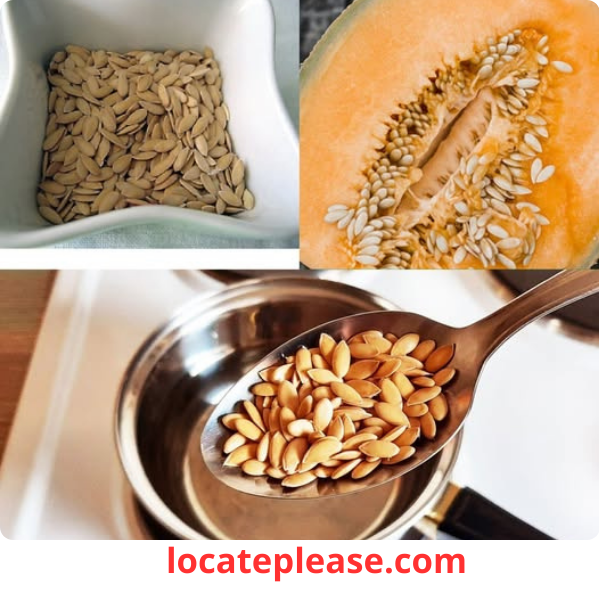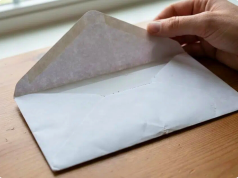When you enjoy a juicy slice of watermelon, cantaloupe, or honeydew, what do you do with the seeds?
Most people toss them without a second thought — but you might be throwing away one of nature’s most nutrient-dense superfoods.
Melon seeds — from watermelons, cantaloupes, and honeydews — are packed with vitamins, minerals, healthy fats, protein, and antioxidants. And one of the simplest, most traditional ways to unlock their power?
👉 Boiling them to make melon seed tea.
Yes — you can turn those tiny seeds into a nourishing, earthy, health-boosting drink that’s been used for generations in African, Middle Eastern, and Asian wellness traditions.
Let’s explore why boiling melon seeds is a brilliant idea — and how this humble tea can support your heart, skin, kidneys, and more.
🌱 What’s Inside Melon Seeds?
Before they’re boiled, melon seeds may look unassuming — but they’re nutritional powerhouses.
Just one cup of dried melon seeds contains:
- High-quality plant protein – Supports muscle repair and satiety
- Healthy fats – Including omega-6 and monounsaturated fats
- Magnesium – Crucial for heart, nerve, and muscle function
- Iron – Helps prevent anemia and fatigue
- Zinc – Boosts immunity and skin health
- Fiber – Aids digestion and gut health
- Antioxidants – Like vitamin E and phenolic compounds
When you boil the seeds, these nutrients infuse into the water, creating a light, nutty-flavored tea that’s both soothing and deeply nourishing.
☕ How to Make Melon Seed Tea
Making melon seed tea is simple and requires no special equipment.
What You’ll Need:
- 1 cup melon seeds (rinsed and dried — save them next time you eat melon!)
4 cups water
- Optional: Cinnamon, honey, or lemon for flavor
Step-by-Step:
- Clean & Dry Seeds
- Scoop out seeds from fresh melon, rinse well, and pat dry.
- Let them air-dry for a few hours or roast lightly (optional).
- Crush (Optional)
- Lightly crush seeds with a mortar and pestle or rolling pin to help release nutrients.
- Boil
- Add seeds to a saucepan with 4 cups of water.
- Bring to a boil, then reduce heat and simmer for 15–20 minutes.
- Strain & Serve
- Strain the tea into a cup.
- Add a dash of honey, lemon, or cinnamon if desired.
- Drink warm, once or twice daily.
✅ Tip: You can reuse the boiled seeds — roast them for a crunchy snack!
💚 5 Science-Backed Health Benefits of Melon Seed Tea
1. Packed with Antioxidants
Melon seeds are rich in phenolic compounds and vitamin E, powerful antioxidants that:
- Neutralize free radicals
- Reduce oxidative stress
- May lower the risk of chronic diseases like cancer and heart disease
Boiling helps extract these compounds into the tea, making them easier for your body to absorb.
2. Enhances Heart Health
Melon seeds are a rich source of magnesium — a mineral essential for:
- Regulating blood pressure
- Supporting healthy heart rhythm
- Reducing arterial stiffness
Studies show that higher magnesium intake is linked to a lower risk of heart disease and stroke.
Sipping melon seed tea daily can be a heart-smart habit.
3. Promotes Glowing Skin
The essential fatty acids and zinc in melon seeds help:
- Hydrate skin from within
- Support collagen production
- Reduce inflammation and acne
Drinking the tea regularly may help improve skin texture, reduce dryness, and promote a natural glow — all from the inside out.
4. Supports Kidney Function
In traditional medicine, melon seed tea is known as a natural diuretic — helping the kidneys flush out excess fluids and toxins.
It may also help:
- Prevent kidney stones (thanks to its mineral balance)
- Reduce swelling and bloating
- Support overall urinary tract health
💡 Note: While not a cure, it’s a gentle, supportive drink for kidney wellness.
5. Improves Digestion
Melon seeds are high in dietary fiber, which:
- Adds bulk to stool
- Encourages regular bowel movements
- Feeds beneficial gut bacteria
When boiled into tea, the fiber-infused water can help soothe the digestive tract and relieve mild constipation.
🌿 Traditional Uses Around the World
- In Nigeria, watermelon seed tea is given to pregnant women to support kidney health and reduce swelling.
- In China and India, melon seeds are used in herbal remedies for coughs, thirst, and heat-related fatigue.
- Across West Africa, the tea is consumed for energy, stamina, and male reproductive health.
Modern science is now validating what traditional healers have known for centuries:
👉 Melon seeds are medicine in disguise.
⚠️ Safety & Tips
✅ Use organic melons — to avoid pesticide residue on seeds
✅ Start slow — drink 1 cup daily to see how your body responds
✅ Avoid if allergic to seeds or nuts
✅ Not a substitute for medical treatment — consult your doctor if you have kidney disease or other conditions
🍉 Final Thoughts: Don’t Waste the Seeds — Brew Them!
Next time you slice into a melon, don’t spit or toss the seeds.
Instead, save them, dry them, and boil them into a warming, health-boosting tea.
It’s a small act of sustainability — and self-care.
From heart health to glowing skin, from kidney support to better digestion, melon seed tea is proof that the most powerful remedies often come from the simplest places.
So boil the seeds.
Sip the benefits.
And let nature nourish you — one seed at a time.
Waste nothing. Heal everything. The power of the melon was in the seeds all along.






